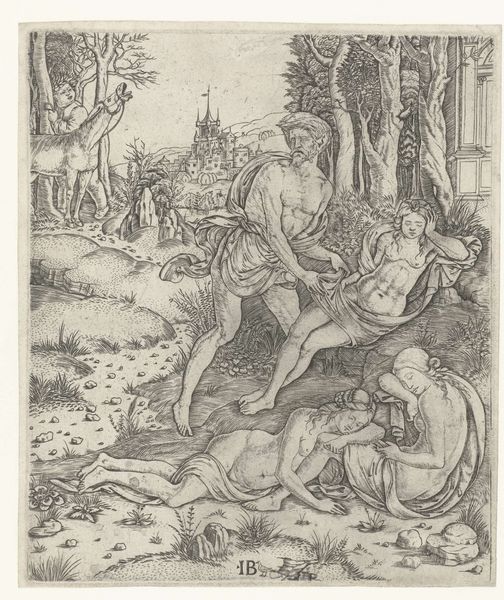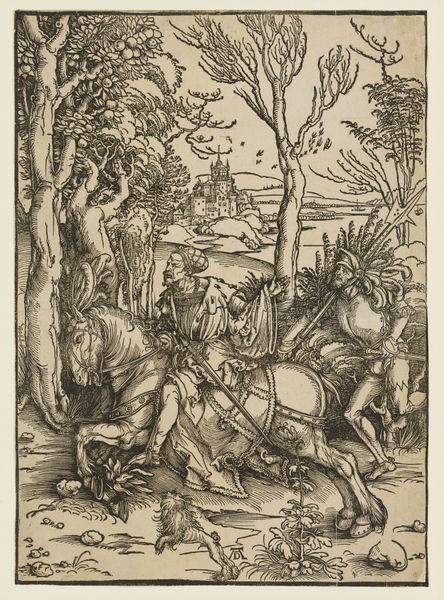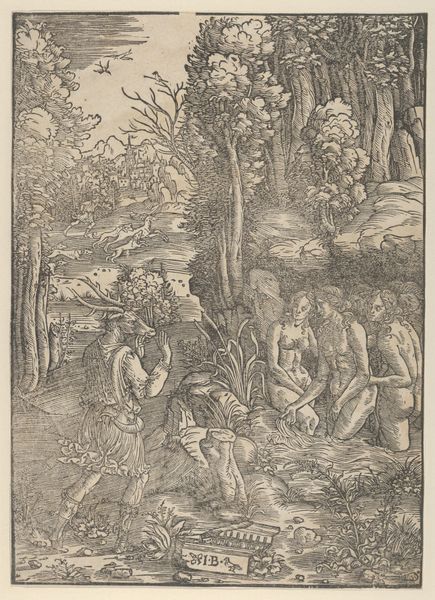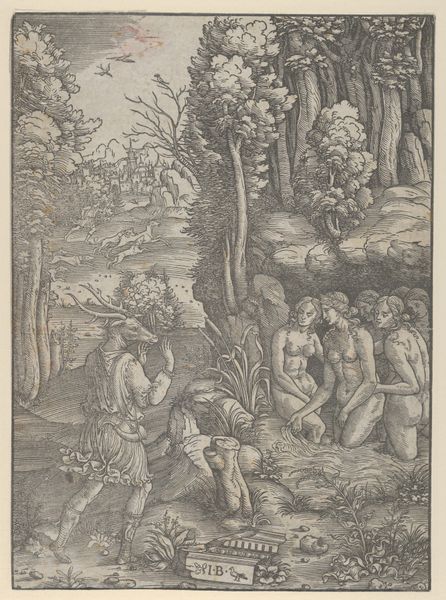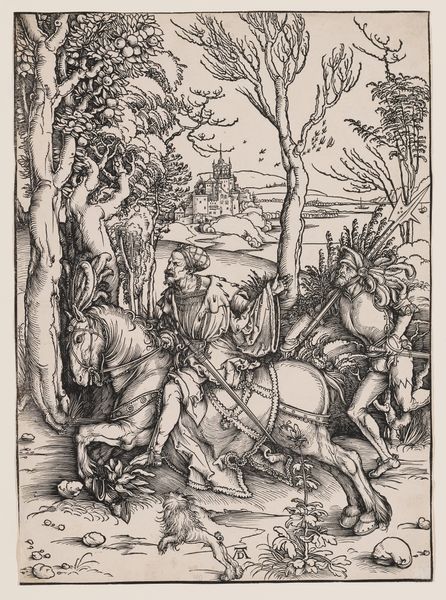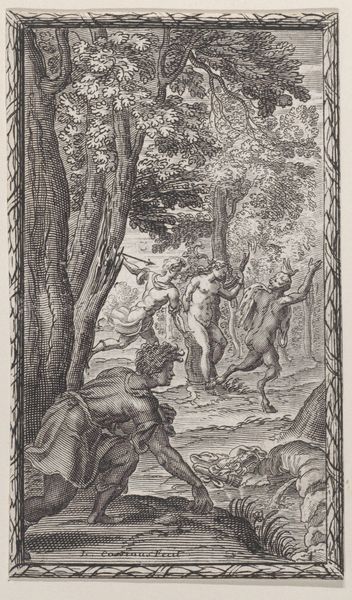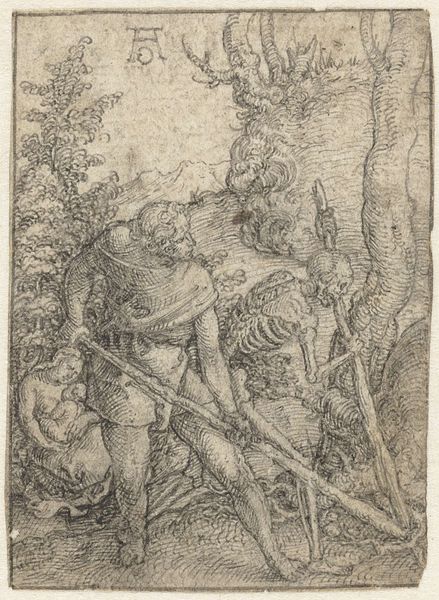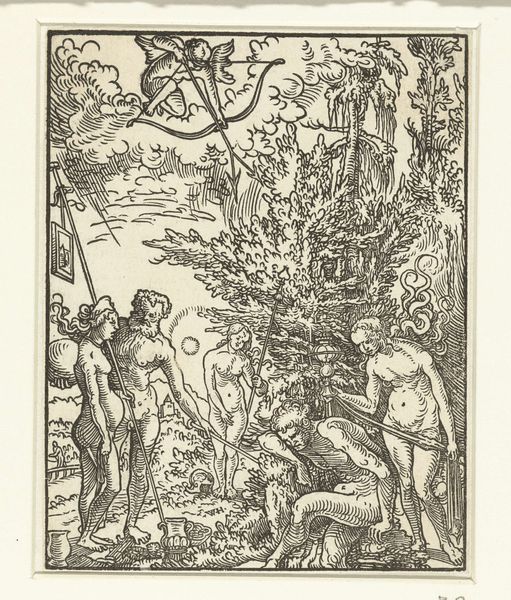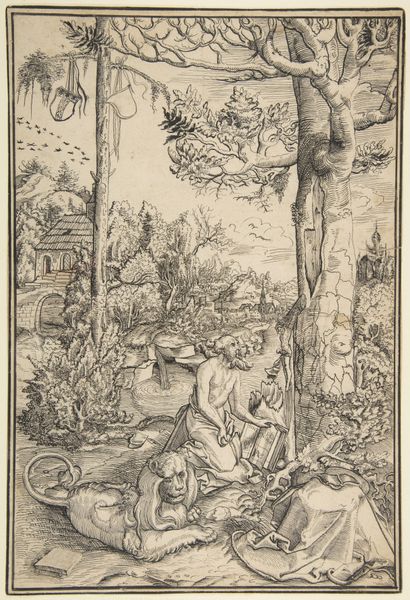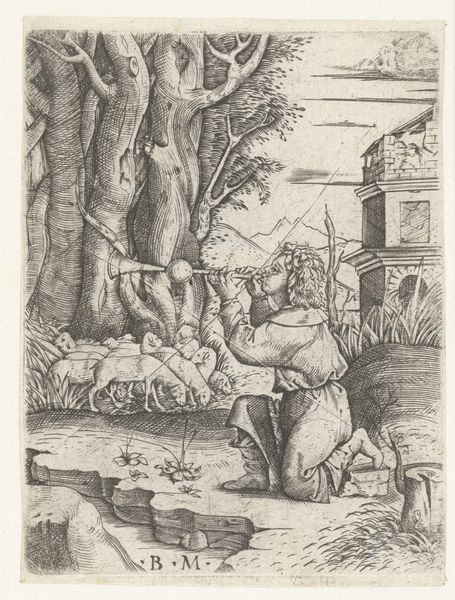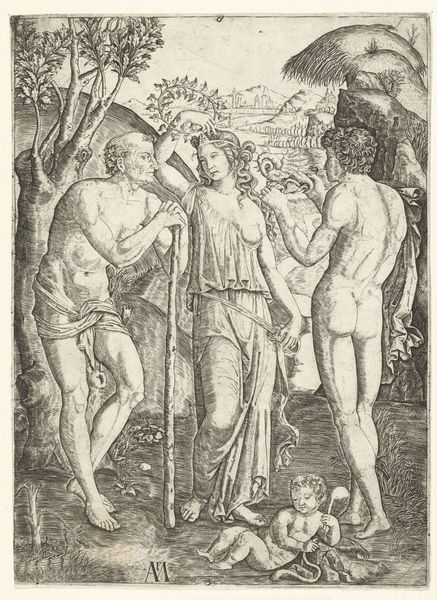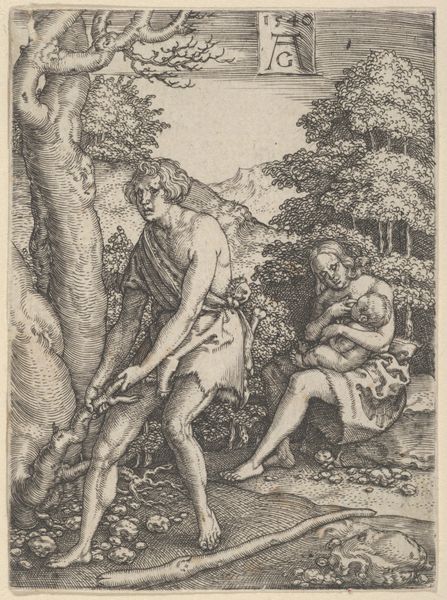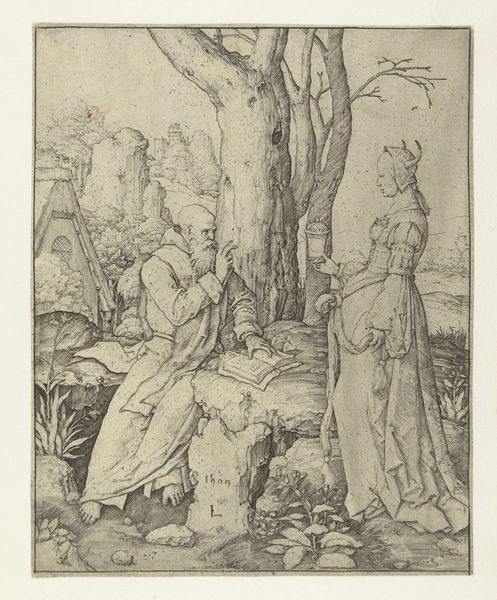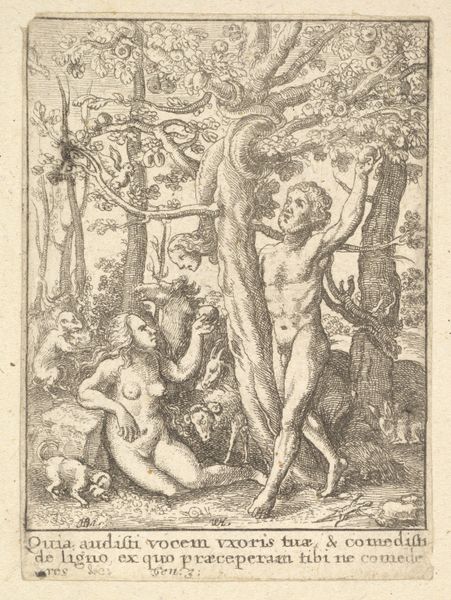
print, woodcut
#
pen drawing
# print
#
landscape
#
figuration
#
pen-ink sketch
#
woodcut
#
history-painting
#
northern-renaissance
Dimensions: height 119 mm, width 92 mm
Copyright: Rijks Museum: Open Domain
This woodcut, Pyramus and Thisbe, created by Wolfgang Huber, depicts a poignant scene from Ovid's Metamorphoses. Here, we witness the tragic climax of the tale: Pyramus, wrongly believing his lover Thisbe to be dead, falls upon his sword. The image is dominated by the figure of Pyramus, lying in agony, while Thisbe approaches, a picture of shock and grief. Notice how the tree looms over the scene. The tree, initially bearing white fruit, was stained red by Pyramus's blood – a symbol of transformation through violence and sorrow. This motif of the life-giving tree altered by death echoes in various cultural narratives, from ancient myths of transformation to Christian symbolism, where the cross, a tree of death, becomes the tree of life. The raw emotion captured in Huber's woodcut transcends its immediate context. The universality of love, loss, and tragic misunderstanding continues to resonate. The powerful, subconscious allure of such tales engages us, reminding us of our shared human condition across time. It is a cycle; death and rebirth, joy and sorrow, forever intertwined in the human experience.
Comments
No comments
Be the first to comment and join the conversation on the ultimate creative platform.
